Spring 2018
Celebrating 50 years of Office of Undergraduate Studies scholars
BY REBECCA DOWNING
For 50 years, Colgate’s Office of Undergraduate Studies (OUS) Scholars Program has been providing opportunity and academic support to students who have shown talent, creativity, intellect, and determination in the face of significant challenges.
We caught up with several alumni to learn how their OUS experiences shaped their lives and careers — starting with the former student who has returned to lead and support Colgate’s teachers.
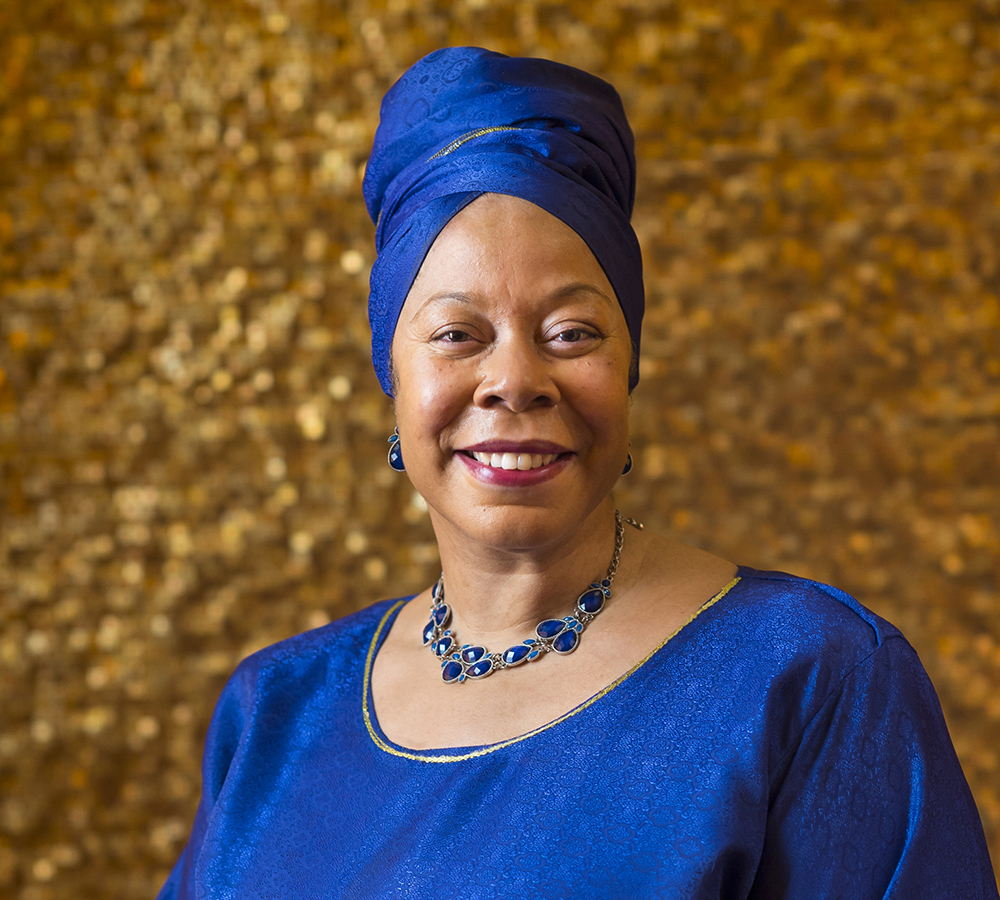
Photo by Mark DiOrio
Tracey E. Hucks ’87, MA’90
Provost and Dean of the Faculty, Colgate University
MA, PhD in religions of the Americas, Harvard University
Prior professional experience
• James D. Vail III Professor and Chair, Africana Studies Department, Davidson College
• Professor of Religion and Department Chair, Haverford College
Colgate major and concentration: Religion and Africana studies
When Beyoncé’s Lemonade came out in 2016, Religion Dispatches — Emory University’s online magazine covering issues at the intersection of religion, politics, and culture — published a “Ten Books to Read” to understand the highly acclaimed visual album, Tracey Hucks’s Yoruba Traditions and African American Religious Nationalism was one of those books.
That Hucks’s work — rigorously written for a scholarly audience — has reach in the public domain is an apt metaphor for a scholar, academic, and administrative leader who is down to earth and warmly approachable.
Both her grounding in scholarship and her accomplishments in academe, she says, started with her Colgate OUS (then the University Scholars Program) experience and have now brought her full circle back to campus.
A scholar’s foundation
“The year my class came into OUS, Margaret Darby [writing and rhetoric] taught the writing seminar. The workshopping of our papers and the close care she gave to each of our assignments made a profound impact on me. When I wrote my lengthy scholarly book many years later, I attributed that in part to the skills and confidence I received from my early coursework with Margaret Darby. What was exceptional was that she did not teach according to who she thought we were as students of color. Instead, she taught according to who she thought we could and would be. With those high expectations and standards, the direction to move was upward.”
Three path-setting moments at Colgate
“I am among several Colgate alumni who lost a parent during our undergraduate years. It was an utter devastation to be 19 years old and to lose your mother. I found out in the evening as I was preparing for the Black Student Union dinner. By the next morning, OUS had booked my airline ticket and arranged for an OUS staff member to drive me to the airport. Also, Chris Vecsey — who was my major adviser — called me into his office to assure me that the philosophy and religion department would support me through to graduation. That was invaluable.
“The other transformative moment is connected to Professor Josiah Young, who also taught in philosophy and religion. I had written a paper for his class, and he asked me to come to his office to retrieve it. I was very nervous, and when I arrived, he handed me the paper. It had an ‘A’ on it. He said to me, “You should consider being a professor. You have a great mind.” He saw me as someone who could be a producer of knowledge. That was a powerful moment. Equally as powerful was the ability to study with Harvey Sindima, Chris Vecsey, Coleman Brown, Wanda Berry, Anne Ashbaugh, and Marilyn Thie on the graduate level before going off to Harvard University for my PhD.
“The final path-setting moment was when R.V. Smith arranged a study-abroad opportunity to Kenya and Tanzania. This, in addition to studying with Manning Marable in Africana and Latin American studies, changed my life. Now having traveled to nearly three dozen countries and published as a scholar in the field of Africana religious studies, I look back with gratitude on this first experience abroad.”
Coming back to Colgate
“In part, I see my journey back to Colgate as provost and dean of the faculty as a sense of reciprocity. Colgate gave me many gifts when I was here as a student.
“My job is exhaustingly exhilarating! Being able to privilege faculty support is very important to me. Over the course of my professional career, wonderful provosts and deans of the faculty were incredibly supportive of me, and so part of my goal is being able to demonstrate that to the faculty in equitable ways. I love the team I work with; we know our collective mission is to provide the best support system we can for the Colgate faculty.”
Core of confidence
“When I meet current OUS students on campus, I let them know that I am them and they are me. OUS has had a tremendous half-century history at Colgate. It has served as an extraordinary gateway into Colgate and support. Of course, OUS will change over time, but we want it to maintain a steady core of access to faculty mentorship, cohort building, and resources that one needs to be successful at Colgate and beyond. My advice to OUS students is to receive the best of Colgate and in the places where they feel Colgate is most challenged, to leave the best of themselves there. My ultimate vision is for Colgate OUS students to come here and to know what my generation knew — that they will be successful and that they have brilliance to share with this campus and with this world.”
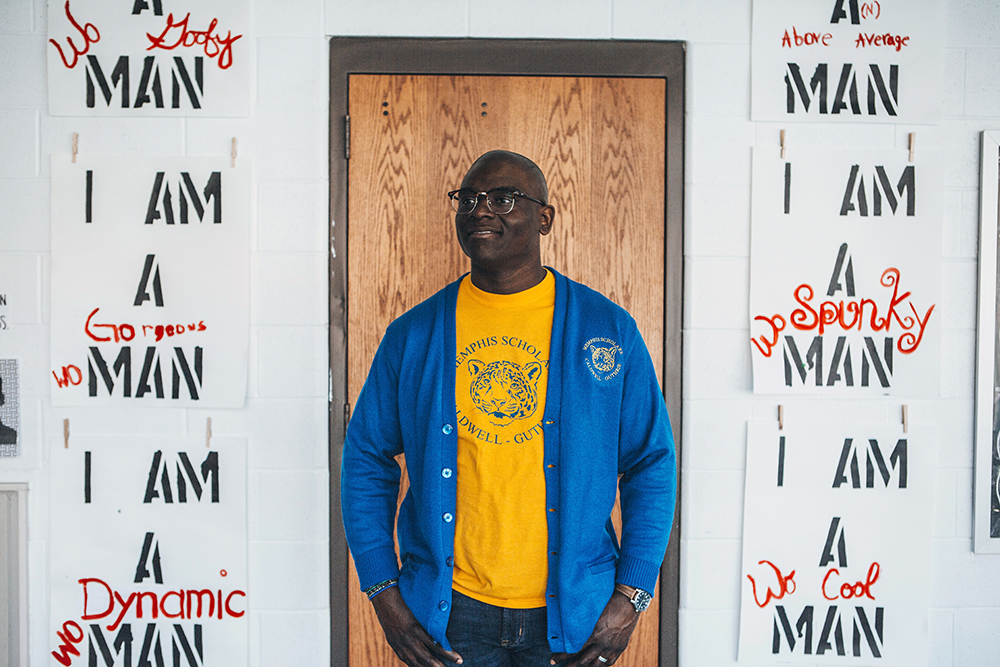
Photos of Wil Redmond by Andrea Morales
Wil Redmond ’08
Assistant School Director, Memphis Scholars Caldwell-Guthrie Elementary School
Memphis, Tenn.
MDiv, Race and Religion, Emory University
Colgate major: Religion
Alumni involvements: Board of Trustees (2009–12), SophoMORE Connections
Transforming school culture
“My role is overseeing what our school culture looks like, and that has turned into creating a discipline system for our students that is culturally responsive.
“We have a low-to-no-suspension, restorative practices approach; we want to make sure our students don’t leave with just academic knowledge but also socioemotional knowledge. If students get into a fight, they’re not automatically suspended or sent home. They have a conversation with our dean and then with each other. Many of them come away the best of friends. I get so much joy out of having the power to make that intentional shift.”
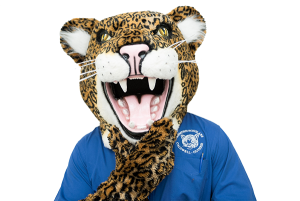
Gettin’ Jiggy wit’ it
“My role is also reimagining what school looks like for students, so I’m also the ‘fun’ person. I’m the mascot — Jiggy the jaguar. He’s our chief entertainment officer. Sometimes Jiggy’s walking around giving out hugs. Students absolutely love it.”
Education as social justice
“For me and my coworkers, education is the social justice issue of our day. The world doesn’t change until everyone has a voice, and the way for everyone to have a voice is through education. We’re the only elementary school within an eight-mile radius, and we want to not just be the school in the neighborhood, but to be the change in the neighborhood.”
A powerful lesson
“To this day, Harvey Sindima’s philosophy course is the hardest class I have ever taken. It was so foreign to be learning that material and being held to such a high standard. I remember being very grateful for the experience but thinking, ‘Why do I have to have it this hard? What put me here?’
“At certain points later in my life, I have thought the same thing, and I’m now starting to see. In professional instances, sometimes I’ve felt like I’m in over my head. But I have to act, because that’s what I’m being expected to do, and I have to do it to a high standard.
“Coming away from that OUS experience, it set me up for something much greater.”
“The world doesn’t change until everyone has a voice, and the way for everyone to have a voice is through education.” — Wil Redmond ’08
What OUS meant to him
“Community. Tyrone Russell was one of the teaching assistants and facilitators. He had a lot of real conversations with us. One of the most impactful was, ‘You’ve got to find a group and latch onto them. You go to the library, you study together, you hold each other accountable for your grades, you go out together. You want to make sure each of you gets through this experience.’
“At one point, I was leading the Brothers with my best friends. I was understanding what community looks like and how to build community in a way that is sustainable and successful.
“OUS’s focus on community set me up to do that in a professional way that I am grateful for and appreciate. It feels special to bring that part of Colgate to the rest of the world.”
Tal-ee Roberts ’01
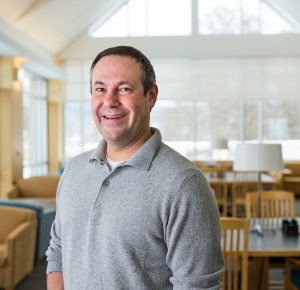
Photo by Mark DiOrio
Entrepreneur
Santa Fe, N.M.
• Partner, co-founder, Gear Institute, LLC
• Principal, Roberts Internet Consulting
• Chief marketing officer, ApresActive
Colgate major: English–creative writing
Alumni involvements: SophoMORE Connections, Alumni Admission Program
Gear head
“My online media company, GearInstitute.com, produces outdoor and action sports gear reviews. I met one of my co-founders while we were walking our dogs in our neighborhood.
“One of the perks of owning the site is gear companies invite you on trips to try out their new stuff. So, I write about where we went and what we did. All the operations run through me: advertising, the website, servers.”
Techie
“As an Internet consultant, I do a lot of IT support work for the federal Department of Health and Human Services’ Indian Health Service and the Department of the Interior’s Bureau of Indian Affairs. I’m doing database and back-end work, like website and application updates.”
Augmented adventuring
“I’m also part of ApresActive, an augmented reality app development company focusing on the outdoors, in Durango, Colo. I’m the chief marketing officer; I reach out to different potential partners, like ski resorts and ticket sites.”
Web wonders
“In high school, I was really interested in computers and had developed websites. The web was new, and it was fun to be able to do that stuff when other people weren’t. The ability to publish something instantly worldwide is pretty cool.”
“When I got to Colgate, I joined the Web Guild. I developed the English department and interdisciplinary writing department websites and worked on sites for other departments and groups like CUTV and the Maroon-News.”
[youtube https://www.youtube.com/watch?v=ixYuMhtIfl8&w=560&h=315]
The Santa Fe connection
“I met my wife, Katie [Chamberlain ’01], at Colgate. We live in Santa Fe, where I did off-campus study, led by my adviser, Professor Sarah Wider [English]. Katie is the president of the Colgate Club of New Mexico, and we organize events, like Albuquerque Isotopes baseball games. Professor Wider is still a good friend. Our highlight event every two years is to have her, the Santa Fe Study Group, and alumni over to the house.”
OUS standout memories
“The connections I made certainly carried on throughout my four years. I also made friends with our student tutors who were older than us. It was nice to know some upperclassmen — that was valuable for being able to spread out and make friends among everyone on campus.
“I did the Science and Math Initiative. We took classes focused on biology, mathematics, and interdisciplinary writing. That created my foundation for blending science with English in order to be able to communicate scientific and technical ideas in the real world.”
OUS students should know
“Colgate is challenging, but it’s a lot of fun, too — don’t get too hung up on how much work you have, but also enjoy the people and the place you get to be for four years.
“One thing I remember pretty vividly was a quote that I think was on a Coop sheet: ‘Education is not the filling of a bucket, it’s the lighting of a flame.’”
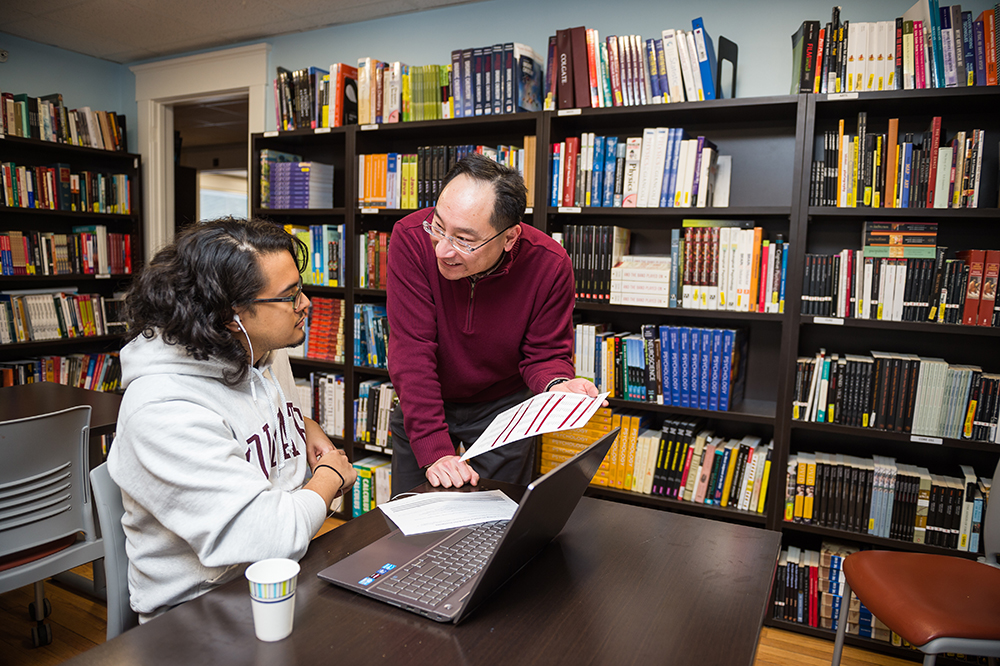
The library in the OUS and the First-Generation Initiative house is a popular study space. There, all the books required for courses being taken by current students are on hand (L to R: Jason Dominguez ’20 and Frank Kuan, senior associate director). Photo by Mark DiOrio
A community of scholars
One Thursday night in January, several students of Japanese language are watching anime on the living room TV. Another group works together on a class project in the back study room. Heads are bent over books and laptops at the library room tables. The kitchen refrigerators and cabinets, stocked full with snacks, are always quick to empty. It’s a typical weekday evening in the OUS “red house.” Although not a residence hall, the structure formerly known as La Casa Pan Latina Americana (across the road from Merrill House) has become a home base for Colgate’s OUS scholars and students in the First Gen Initiative, a pilot program in its third year.
“Students feel comfortable here,” Frank Kuan, senior associate director, says. “They study. They hang out. And we have a coursework library with more than 2,000 titles that they can check out every semester.”
Established in 1967 as the Special Students Program and known as the University Scholars Program from 1969 to 1989, the Office of Undergraduate Studies (OUS) manages the second-oldest scholars program at Colgate.
Chosen through the admission process, OUS scholars are a highly select cohort who sought the most demanding academic paths open to them and dedicated themselves to their studies in the face of personal, economic, and social challenges. Typically, of the 36 enrolled per class, most are from the first generation in their family to attend college and have high financial need, and many come from under-resourced high schools.
The OUS program begins with the five-week summer institute, designed to ease the transition to Colgate and develop academic readiness. Students take rigorous courses taught by Colgate professors and are introduced to campus resources, from the libraries and financial aid to career services.
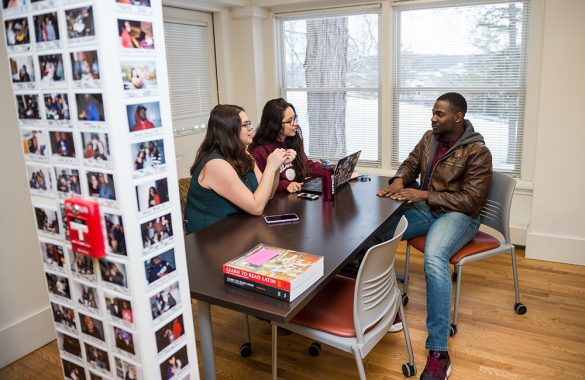
L to R: Romelia Loaiza ’17, Alma Brizio ’18, and Shamarcus Doty ’20. Photo by Mark DiOrio
“It’s like a full semester in five weeks. It’s challenging,” says Regine Cooper ’19, an OUS student who has worked as a residential academic coach for incoming first-years. “Now, being in a leadership position, I understand when they’re sleepy, that they miss home, and that they’re being introduced to a new world.”During their first year, OUS scholars live in the same residential commons. The Class of 2020 are members of Ciccone Commons (named for OUS alumna and former Colgate Trustee Diane Ciccone ’74, P’10), while the Class of 2021 members reside in Colegrove Commons.
The experience lends a sophisticated understanding of the work and the commitment it takes to build community, making them attractive candidates for selective academic programs such as the Sophomore Residential Seminars.
“I was always delighted by the OUS scholars in my classes because of the way they interacted with the materials, the kinds of questions they asked, the research projects they wanted to do,” says Suzanne B. Spring, a writing and rhetoric professor who became OUS’s faculty director this year. “They often would press beyond the boundaries of knowledge within my own discipline. They’re risk-takers, and that’s exciting for me both intellectually and in terms of what can happen in a professor-student relationship.”
Academic and administrative mentoring continue throughout the four years. A discretionary fund, established by alumni and parents, provides enhanced support for students.
And OUS students thrive. Measures such as graduation, retention, and study- abroad rates; the percentage of students on the Dean’s List; and graduation GPAs all increase with participation, meeting or exceeding those of non-OUS students. OUS scholars have a history of making significant and meaningful impacts on campus; for one, since 1973, 105 OUS scholars have been inducted into Konosioni, nearly 10 percent of the senior honor society’s membership during that time.
Cooper, a political science major and educational studies minor from Fort Myers, Fla., has thrown herself into her Colgate experience. She created a social justice venture through Thought Into Action, made the 2016–17 Patriot League Academic Honor Roll (track and field), and was selected for both the Philadelphia and Washington Study groups. She credits the support of her OUS family for getting her through some tough personal challenges. “I don’t know what I would do on Colgate’s campus without OUS,” she says. “The experience is one in a million.”
Starr Kelly ’10, MAT’13
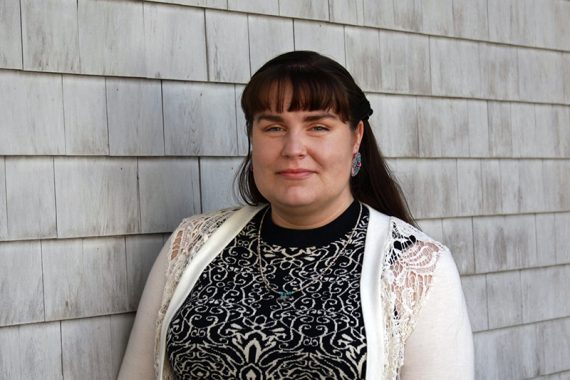
Photo courtesy of Abbe Museum
Curator of Education, Abbe Museum
Bar Harbor, Maine
Colgate major: Native American studies
Prioritizing tribal voice
“I am utilizing my social justice–oriented graduate degree in teaching to transform the way museum education is being done.
“I work at an institution committed to decolonizing museum practices. I create programs and exhibitions that prioritize and privilege Indigenous Wabanaki voices. I am leading my department in establishing protocols around decolonization and working closely with local public schools to advocate for decolonizing curriculum practices.
“I find my work with Wabanaki peoples and tribal leaders to be the most meaningful. I am committed to Wabanaki people so they can tell their own stories of colonization, survival, and revitalization in a museum setting.”
What OUS meant to her
“As one of the few Native students on Colgate’s campus, it was vital that I find a community of support both socially and academically. I contribute my success in college and graduate school to the OUS program. The friends I made during OUS are still my friends today, and they were supporters who kept me in school.”
An expanding world view
“OUS inspired me to think about social justice in new ways and introduced me to the educational studies department. I knew I had to be part of something bigger than myself to feel fulfilled by a career. I witnessed the positive impact of education throughout OUS, and I wanted to be part of this kind of work.
“By participating in the program, my world grew exponentially. I began connecting the colonization I’ve known all my life as an Indigenous person to the experiences of other people of color. I grew to appreciate why supporting our collective and individual social movements is vital to everyone’s unified well-being.”
OUS COUNTS
Succeeding in their careers, volunteering over the years, OUS alumni are living and working everywhere from Alsace to Atlanta, Pasadena to Phnom Penh, and Hanoi to Hamilton, N.Y.
1,469 Total OUS alumni | 1971 First graduates of the Special Scholars Program | 105 Konosioni senior honor society members | 3 1819 Award Winners (10 percent of total recipients) | 7 Board of Trustees members | 19 Alumni Council members | 157 Admission volunteers | 166 Career services volunteers
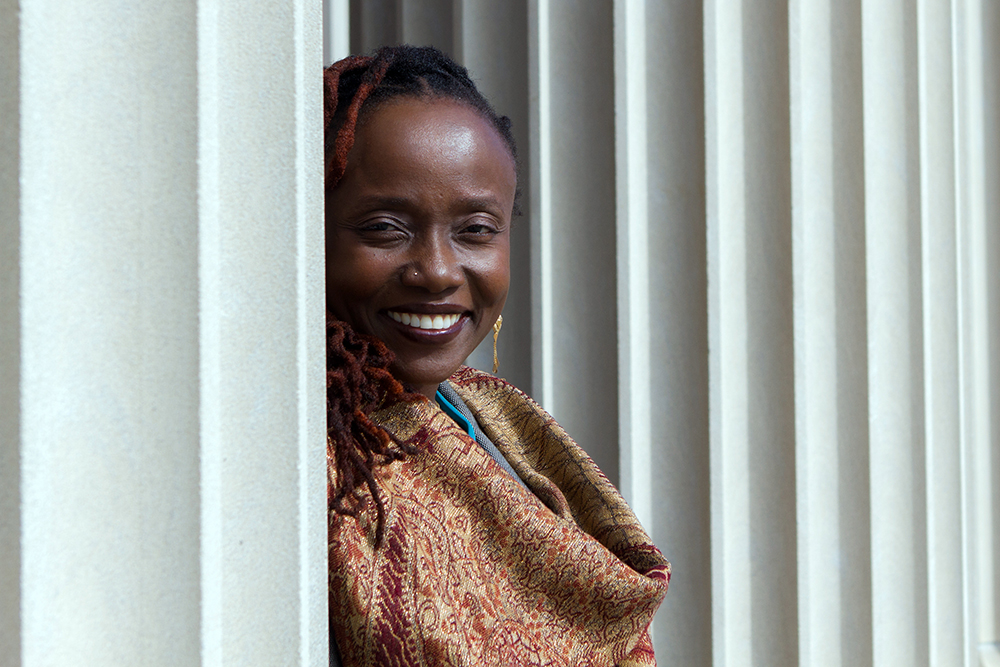
Michèle Alexandre ’96
Associate Dean for Faculty Development and Intellectual Life, Professor of Law, Leonard B. Melvin Jr. lecturer University of Mississippi School of Law
Oxford, Miss.
JD, Harvard Law School
Colgate major: English and French, emphasis on philosophy
1819 Award Winner
Editor’s note: We asked Amarachi Iheanyichukwu ’21, a current OUS student, to interview OUS alumna Michèle Alexandre ’96 and write about their conversation.
Michèle Alexandre picks up on the first ring. As we exchange pleasantries, I struggle to keep the anxiety out of my voice but find comfort in hers, an orotund yet warm sound. She speaks as if she has all the time in the world, yet her reality could not be further from the languid lifestyle her tone suggests. Alexandre has a demanding schedule as a law professor, lecturer, and associate dean for faculty development and intellectual life at the University of Mississippi School of Law. To start the conversation, I ask her to paint me a picture of her life before Colgate and she obliges, transporting me to 1980s Brooklyn.
Alexandre attended Prospect Heights High School in the early 1990s, a period marked by a rise in gang activity and violence in the neighborhood. The challenges presented by her environment were only exacerbated by the fact that, as a recent transplant from Haiti, Alexandre did not speak English. In spite of all of this, she persevered.
“I refused to give any excuses for why I could not succeed,” says Alexandre, who was recruited by Colgate for her stellar grades.
In describing herself at age 16, Alexandre chooses the word “hungry,” illustrating the keenness with which she competed against and excelled beyond her English-speaking peers. This hunger for intellectual pursuit eventually led not only to her early graduation but also secured Alexandre’s spot within Colgate’s OUS Scholars Program.
As an OUS scholar myself, I inquire about her experience with the program’s Summer Institute, interested in indications of time’s shadow. Her voice is nostalgic as she recalls late nights and early mornings, hours spent toiling over religious texts, writing papers, and improving her English.
“I refused to give any excuses for why I could not succeed.” — Michèle Alexandre ’96
“I didn’t sleep a lot while I was at Colgate,” she chuckles. “But, it was kind of like I fell in love — with the work, the professors, and OUS.”
She specifically remembers professors Margaret Maurer (English) and Harvey Sindima (philosophy and religion), whose courses she characterizes as foundations for her love of writing and literature. She goes on to sing the praises of several other professors, listing them off as one would their favorite musicians. She stops only to refer back to Professor Sindima, whom she lauds as a “legend.”
The conversation moves toward Alexandre’s historic accomplishment as Colgate’s first black valedictorian.
“At the time, Colgate was only five percent of color, so we were hyperaware that we were performing in an environment where many of our peers felt we did not belong,” she remarks. “That alone motivated me to claim my space.”
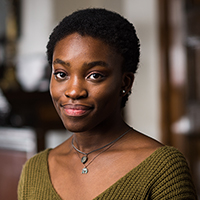
A lover of literature, social justice, and music, Amarachi Iheanyichukwu ’21 is pursuing a double major in political science and economics. She also tutors high school students in English and history, and she advocates for social equity as a member of Colgate’s Student Government Association. Photo by Mark DiOrio
Elaborating, Alexandre focuses on her love of knowledge and refusal to be ignored, traits that propelled her through her graduate years at Harvard Law School and stint as a lawyer fighting for the oppressed.
“You won’t be loved by everybody, but that should never stop you,” she tells me as she slips in an anecdote about her work on the famous Black Farmers’ class action suit as a new lawyer.
Today, Alexandre is no longer practicing law; instead, she teaches others to take her place. “I knew I wanted to be a professor as soon as I started law school, but working at firms is always recommended; it allows you to dig deep scholarly wise,” she explains.
Of her current position as a law professor at the University of Mississippi, which she has held for the last decade, Alexandre adds: “It’s so rewarding not only because I get to do interdisciplinary work and wrestle with issues that have a significant impact on society, but also because I get to relate with and help shape new generations.”
In closing, I ask two more questions. Who is Michèle Alexandre beyond the valedictorian, the lawyer, and the professor? And what brings her joy? She thinks for a moment. And then the words come, first slowly, then all at once. Although we are just voices more than 1,000 miles apart, it is easy to imagine her in front of me as she laughs about her newfound love of R&B artist SZA and the therapeutic nature of running marathons twice a year. We discuss our shared affinity for old-school hip-hop and her fascination with millennial dance moves. One could liken her tone to that of a second-semester senior, at ease and excited for the future.
“My heart is with the younger generation,” she tells me. “I truly believe in them.”
And I believe her.
Yvett Sosa ’12
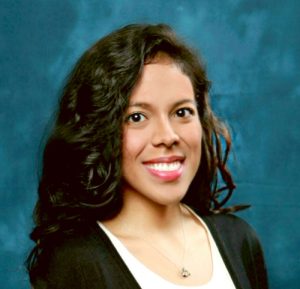 PhD student in biomedical sciences
PhD student in biomedical sciences
Albert Einstein College of Medicine
New York, N.Y.
MS, Columbia University
Colgate major/minor: biology/art and art history
Investigating a major public health issue
“Each year, there are approximately 500,000 deaths resulting from 200 million cases of malaria. Global trends in malaria incidence and mortality have shown improvements; however, there is increasing evidence of resistance to antimalarial drugs. My research aims to characterize and target the P. falciparum parasite purine uptake pathway to generate novel antimalarial drugs. Our lab is in the Department of Physiology and Biophysics. Recently, I have received an NIH fellowship award to do this work.”
Pursuits in career growth
“I am currently participating in the Yale Ciencia Academy for Career Development, a program geared toward enhancing biomedical training and diversity through networks, community, and outreach.”
What OUS meant to her
“The OUS program was a built-in support system and community that I could rely on throughout my time at Colgate. It allowed me to build lasting relationships with both mentors and peers — these relationships have supported me throughout my career path.”
Providence Ryan ’16
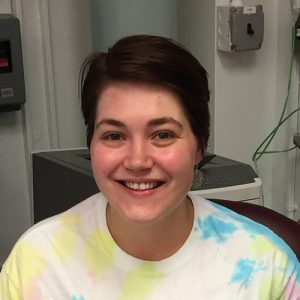 High school teacher
High school teacher
New York City Department of Education
MS in Education, Herbert H. Lehman College, CUNY (currently enrolled)
Affiliated with NYCORE and NYQueer, radical educator collectives
Colgate majors: biology and philosophy
1819 Award Winner
Passion for teaching
“I am a ninth-grade teacher in the Bronx, teaching Living Environment and other science electives, and I love what I do. I have been able to create a culture in my classroom that allows me and my students to have difficult conversations about things that are significant to their everyday lives. I wouldn’t be in this position if it hadn’t been for my OUS family that pushed me to pursue the things I am passionate about.”
Filling the gaps
“I was the first in my family to go to college, so I had no one to ask for information or advice about what to expect. OUS filled those gaps for me in many ways and encouraged me to study the things I was interested in and explore as many facets of Colgate life as possible.
“My peers and professors in OUS were (and continue to be) strong and passionate voices on campus who care about and want to make a positive change at Colgate. In OUS, we become teachers to ourselves and each other. I realized that one of my passions was teaching and making social change through the classroom.”
A message about OUS
“The best part of my OUS experience was it gave me amazing friends, mentors, and resources that helped me transition into college and supported me throughout. One of the most troubling parts of my Colgate experience was the assumptions people made about OUS and its students. Every OUS scholar is in OUS for different reasons, and OUS is not a ‘remedial’ program. All OUS students deserve to be at Colgate as much as everyone else. My hope is that more students and faculty members can start taking time to learn what OUS is about.”
MOMENTOUS 50th ANNIVERSARY CELEBRATION
MAY 31–JUNE 3
Alumni of OUS are invited to join the celebration of its 50th anniversary at Reunion 2018. Special programming will include a formal dinner, during which Colgate will honor OUS alumni, highlight the program’s history, and connect with current students at colgate.edu/reunion






